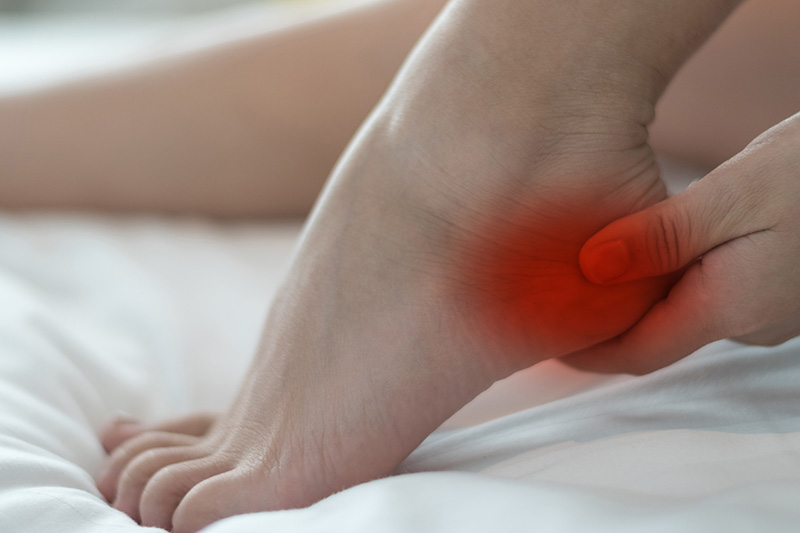PLANTAR FASCIITIS
What causes Plantar Fasciitis?
Plantar fasciitis, sometimes referred to as “runners heel” is the most common causes of heel pain in the U.S. A thick band of connective tissue/tendon called the plantar fascia is over-stretched repeatedly, this causes inflammation in the heel, thus in turn causing pain. Under normal circumstances, the plantar fascia acts like a shock adsorbing bowstring, which supports the arch of the foot. If tension and stress on the bowstring becomes too great, small tears can arise in the fascia. This can be caused by repetitive stretching and tearing that cause the fascia to become irritated and inflamed.
How is Plantar Fasciitis typically treated?
Typically, with Plantar Fasciitis, when the injury is acute, doctors will prescribe rest, and anti-inflammatory medication. Usually an acute injury will be corrected on its own. When heel pain persists for several months and the symptoms become more severe, doctors will prescribe stronger anti-inflammatory drugs and cortisone injections. Though, in a recent study, it has been shown that cortisone shots can further damage the fascia, and have been often said to be ineffective when treated Plantar Fasciitis. Researchers concluded that the use of cortisone injections to treat severe cases of chronic plantar fasciitis should be reevaluated, especially in light of their potential to further degrade or even rupture the plantar fascia.

Latest Studies
- Beneficial effects of platelet-rich plasma on improvement of pain severity and physical disability in patients with plantar fasciitis: A randomized trial.
- Effectiveness and relevant factors of platelet-rich plasma treatment in managing plantar fasciitis: A systematic review.
- Platelet rich plasma versus corticosteroid injection for plantar fasciitis: A comparative study.
- A systematic review and meta-analysis of platelet-rich plasma versus corticosteroid injections for plantar fasciopathy.
- Plantar fasciitis. A comparison of treatment with intralesional steroids versus platelet-rich plasma (PRP). A randomized, blinded study.
How can we help?
New therapies are available for Plantar Fasciitis that are highly effective compared to cortisone shots. PRP therapy contains a concentration of many different growth factors that reduce inflammation and promote the body’s healing capabilities. PRP has long lasting permanent healing results as compared to a cortisone shot which will help in the short term, but it is not a long lasting effect.

What are the benefits?
PRP therapy offers an alternative to invasive treatments for Plantar Fasciitis. Recent findings have shown that traditional treatments like steroid injections and anti-inflammatory medications are ineffective at treating Planter Fasciitis. PRP therapy on the other hand can help speed up the recovery process as well as stimulate damages cells throughout the body to heal and regenerate. PRP therapy is safe and carries zero risk because the blood used for the PRP process is the patient’s own blood. Typically, the plantar fascia heals slowly compared to the rest of the body. This is because the blood supply is limited in the area. PRP can counteract this following an injection, by accelerating the body’s ability to heal.
